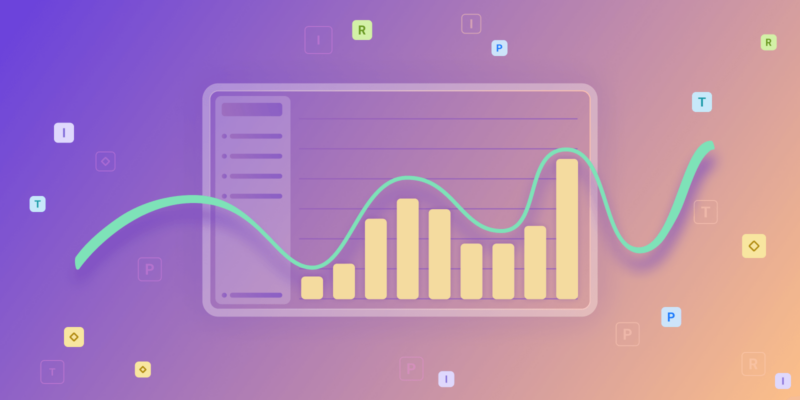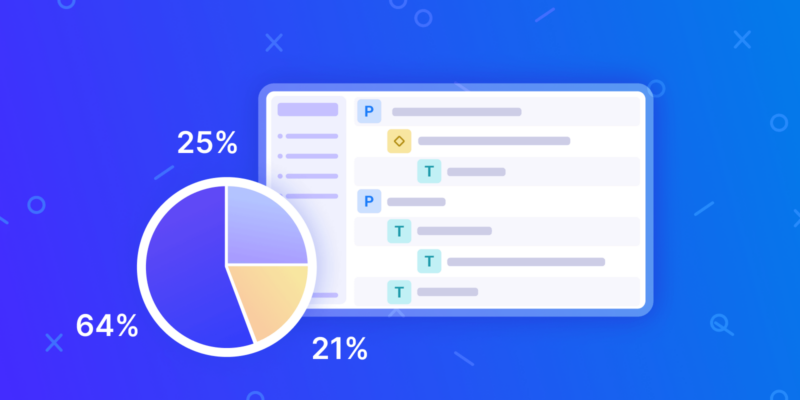Machine learning is transforming the world of project management, bringing new opportunities for efficiency, accuracy, and smarter decision-making. With 81% of project professionals reporting AI’s impact on their organizations, it‘s clear that the future of project management is evolving rapidly. In this article, we‘ll explore how machine learning and AI are reshaping project workflows, improving outcomes, and preparing project managers for a more strategic and tech-driven role.
The Robots Are Taking Over
When I was a kid, science fiction was one of my favorite book genres. It has since been replaced by fantasy (because magic is probably the next evolutionary stage for us – thought I‘d get a head-start). All mirth aside, I loved the idea of a future where humans were able to be more and do more; a future where we are not tied down by work and the mundane aspects of everyday life. I dreamed of a future where machines did everything and we spent our time solving real problems. With the imminent arrival of 2020, we are closer than ever before to achieving this new reality.
Artificial Intelligence vs Machine Learning
Let‘s go over the differences between AI and machine learning because they‘re not the same.
Artificial Intelligence is a subset of computer science dedicated to solving problems that previously, only humans could. In other words, AI is able to think and rationalize like a human in order to solve particular problems. I say particular problems because, just like people, AI programs have specialties that they are programmed to excel at. Just as there is no human that is good at everything, neither is an AI instance ( not yet anyway ).
Machine learning, on the other hand, is when a program itself learns, using data and statistics without “intelligence programming”. The more data that‘s fed into, the more intelligent it becomes.
The state of machine learning in project management
There is a lot of talk about the state of machine learning in project management, but few are aware of exactly what changes it will bring to the industry. Though AI sounds like it‘s a new thing, you‘ll see just how much we already rely on AI. (Think Siri, Alexa and Google Home)
In a recent report on AI, PMI outlines the top six functions of AI-based technologies:
- Knowledge-Based Systems – These include any system that a human has to use. It understands the context of what the issues are, proving insights that help make better decisions. For example, the medical industry uses KBS‘s to find the right diagnosis for an issue based on all of the information it has and the symptoms provided by the practitioner. 71% of organizations expect this technology to impact them in the near future.
- Machine Learning as we mentioned before, is the next step up from KBS. It analyzes data to provide solutions with little human interference. An example of this is when any kind of software is able to crunch large amounts of data and overtime begin to understand patterns to make more accurate predictions as it learns. This is extremely beneficial when using AI in higher education for task creation, or assignment guides. Another everyday example would be Netflix which knows exactly what you like based on what you‘ve watched before. 69% of organizations say that machine learning will impact them in the near future, while 31% are already being impacted.
- Decision Management is when an automated set of rules are created to automate decision making. In project management, this could be something related to resources – like who to assign a task to based on a set of rules.
- Expert Systems mimic human intelligence to solve a particular problem. These problems can include something as simple as planning under constraint to Space Shuttle Mission Control whereby the ES accurately interprets, predicts, repairs, and monitors system behaviors.
- Deep Learning builds, trains and tests neural networks that predict outcomes and/or classify unstructured data based on probabilities. An example of technologies that are deep learning is self-driving cars that have been taught to detect signs, other vehicles, etc.
- Robotic Process Automation mimics and automates corporate tasks to support corporate processes. An example of this would be cloud-based software for processing payroll or handling customer inquiries that saves time and significantly enhances operational efficiency.
What project managers need to know
The good news is, AI will not be replacing anyone‘s jobs just yet. AI will help you make better decisions leading you to improve the chances of delivering a project on time and on budget. The role of the project manager will evolve into one that is strategic as opposed to tactical.
If organizations are looking to adopt AI, they must merge the power of humans with that of machines.
Here‘s how AI & Machine Learning can make an impact on your project management processes and workflows today:
- Reduced Expenses: According to a study by MIT Sloan, 63% of organizations site cost reduction as their main motivation for adopting AI technologies. AI can help automate repetitive manual tasks, allowing teams and project managers to focus on more high value delivering activities, thereby reducing labor costs while improving work quality.
- AI-Based Analytics: Predictive analytics is another great benefit that artificial intelligence provides. The system can gather past project information and forecast, with high degrees of accuracy when projects will be completed. It can also provide managers and team members with more visibility by alerting them if the project is going off-course.
- Higher Efficiency: Embracing AI in project management whenever possible will lead to better results due to increased accuracy and higher efficiency. AI has the ability to offset potential risks using data points and can crunch that data in real-time as a project progresses – much faster and more accurately than most humans. Even more information about the actual state of AI in project management here.
With all of these great benefits, it‘s a no-brainer for project managers to learn about and adopt AI & machine learning technologies. The industry is shifting to embrace AI and it is increasingly being added to project management schools as a core part of the curriculum.
Enhancing security in AI-driven project management
As AI technologies become increasingly integral to project management, the importance of AI security cannot be overstated. Integrating AI into sensitive project processes raises significant security concerns that must be addressed to protect against data breaches, unauthorized access, and manipulation of AI algorithms. Organizations should prioritize the implementation of robust security frameworks which include:
- Automated Solutions: Techniques such as using Selenium with a proxy become evident for enhancing data scraping and automation capabilities within project management software. This approach ensures that predictive analytics are gathered more efficiently and accurately.
- Data Encryption: To protect data integrity and confidentiality, all sensitive project data should be encrypted, both at rest and in transit.
- Regular Security Audits: Conducting regular security audits can help identify and mitigate potential vulnerabilities within AI systems and related infrastructure.
- Secure AI Training: Ensuring that AI models are trained on secure, unbiased datasets is crucial for preventing the introduction of vulnerabilities and biases into AI decision-making processes.
- Continuous Monitoring: Ongoing monitoring of AI systems is essential for detecting unusual activities that may indicate a security threat, allowing for immediate remedial action.
Get started with AI
All of this technology sounds overwhelming and complicated, right? It‘s really quite simple. Start with a simple AI tool, like Birdview AI Forecast. It‘s included as part of our Project Management Platform and there is no set-up required. It works in the background, collecting data about your projects and helping you make accurate predictions about when your project will most likely be completed. You can use this information to save your organization thousands of dollars while improving your stats across the board.
As your organization continues to use Birdview, it will continue to learn from all of the data it receives. It will become smarter and will help you and your team achieve things that once seemed impossible.



